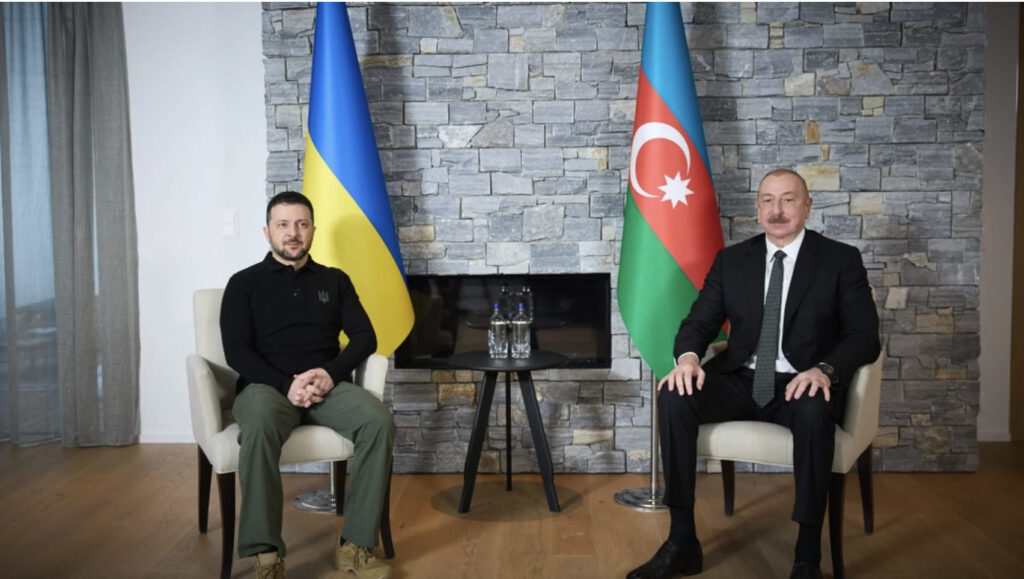Russia bombed Azeri energy assets in Ukraine. Now Baku sends millions in aid to Ukraine

Azerbaijan condemned Russian attacks on Azerbaijan’s energy infrastructure in Ukraine and ordered $2 million in humanitarian assistance to Kyiv.
The announcement follows a phone conversation on 10 August between Azerbaijani President Ilham Aliyev and Ukrainian President Volodymyr Zelenskyy, during which the Ukrainian president reported on Russian strikes against energy facilities.
The next day, Aliyev signed a decree directing Azerbaijan’s Energy Ministry to spend $2 million from the presidential reserve fund on electrical equipment manufactured in Azerbaijan. The decree cited “principles of humanism” but the timing sent a different message.
According to the presidential administration, Ukraine considers these attacks “a deliberate attempt by Russia to block pathways that guarantee energy independence for Ukraine and other European countries.”
Aliyev’s office stated that he specifically condemned Russian airstrikes on an oil depot belonging to Azerbaijani state company SOCAR and a gas compressor station that transports Azerbaijani gas to Ukraine. Russian forces struck the compressor station on the night of 6 August and the SOCAR oil depot on the night of 8 August.
The timing of these attacks is significant as Ukraine had recently begun receiving gas from Azerbaijan via the Trans-Balkan corridor for the first time. Despite the strikes, Aliyev emphasized that the attacks “will in no way lead to a suspension of energy cooperation between Azerbaijan and Ukraine.”
Why does this matter to Azerbaijan? The country spent years building energy partnerships with Europe to reduce dependence on Russian transit routes. Russia’s missiles effectively targeted Azerbaijan’s strategic pivot away from Moscow.
The condemnation may signal a broader shift in Azerbaijan’s support for Ukraine. Azerbaijani Telegram channels close to President Aliyev’s circle report that authorities may lift restrictions on transferring weapons from Azerbaijani stockpiles to Kyiv if Russian strikes on Azerbaijan-related energy facilities continue.
Russian military bloggers are already reporting that Baku has started producing 122mm and 155mm artillery shells for Ukraine.
The energy infrastructure attacks occur against a backdrop of deteriorating relations between Moscow and Baku.
On 27 June, representatives of the Azerbaijani diaspora were detained in Russia’s Yekaterinburg, with two people dying. In response, Baku detained and arrested approximately two dozen Russian citizens, including journalists from the pro-Kremlin agency “Sputnik Azerbaijan,” whose license was revoked in February. Some detainees face charges of drug smuggling and cyber fraud.
Aliyev also previously advised Ukraine to “not accept” Russian occupation of its territories. Now he’s putting resources behind those words.